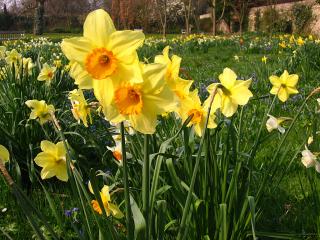Ben Saunders, a fellow Oxonian blogger, just wrote a post on choosing your Oxford college, and I thought I might jump in with a few suggestions of my own. For the uninitiated, the college you choose will have a fairly big impact on your time in Oxford. It will be your major point of contact with the university administration, one place where you meet a lot of people socially, and possibly a place where you will live and/or take meals.
There are a series of important characteristics that Oxford colleges have in greater or lesser amounts, all worth considering:
- Location (the criteria most international students seem to rely upon for selection)
- Reputation (some are old and famous)
- Finances (some will be able to help you financially)
- Library resources (some have excellent subject specific libraries)
To aspiring students of international relations, I suggest you ask yourself the following: “Would I rather be at an old, famous, rich college near the middle of town or a smaller, more specialized, and much newer college on the edge?” In the former case, I would suggest somewhere like Merton. The location is good, the grounds are very nice, the chapel is stunning, and I am told they have a good bit of money to toss around. In the latter case, I would suggest St. Antony’s. It is all graduates, and pretty much everyone is working on politics, IR, or economics. You also get a library with good resources for your subject, and preferential access to a similar library at Nuffield. Nuffield is a good choice if you prefer a very quiet, sober sort of collegial environment.
That said, each of the colleges has features to recommend it. The considerations above include some that didn’t occur to me when I was making my own selection, particularly in terms of library resources. Living in a St Antony’s residence along with two of their students has allowed me to use a fair number of their facilities. Crucially, however, that does not include the library, which colleges sometimes guard jealously from outsiders. Wadham, the college I chose on account of location and a friend’s recommendation, has been very good to me and I would recommend it to people who are particularly keen to avoid the pretension that is so often a mark of the Oxford experience goes. The gardens are also very nice, especially in the spring and summer.
As Ben explains, the decision isn’t one to stress over. It is just worth doing a bit more than putting a map of Oxford on your wall and throwing a dart.
PS. One last thing to consider: as a graduate, you select one college in your application. If your program accepts you but the college does not, you will probably be assigned to one of the colleges that get the fewest applicants. This may be reason enough to avoid the really famous colleges like Christ Church and Magdalen.

